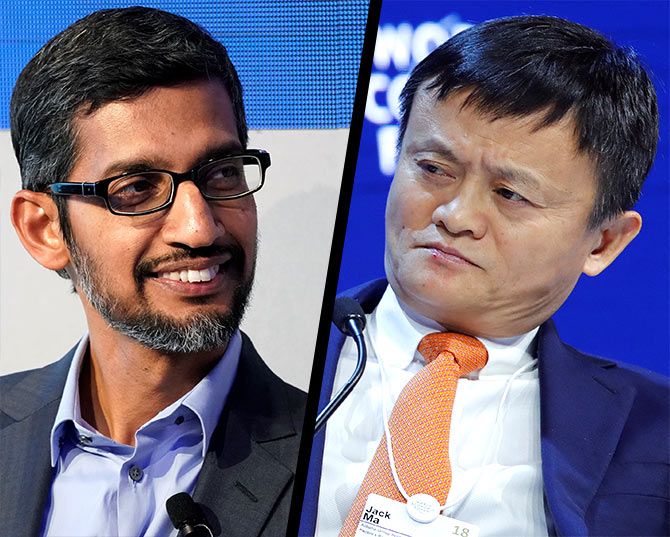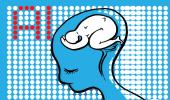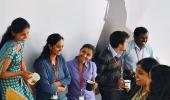AI was the top subject of discussion at in Davos this year.

Photographs: Denis Balibouse/Reuters.
Professor Stephen Hawking has warned that Artificial Intelligence (AI) could wipe out mankind.
Tesla CEO Elon Musk fears that robots will kill us all.
But the march of AI, for now, seems unstoppable.
The subject was one of the most talked about things at this year's World Economic Forum (WEF) in Davos, Switzerland.
WEF noted, 'It's a historic moment for AI.
'All the pieces are coming together: big data, advances in hardware, emerging powerful AI algorithms, and an open source community for tools that reduces barriers to entry for industry and start-ups alike. The result: AI is being propelled out of research labs and into our everyday lives, from navigating cities, ride shares, our energy networks, to the online world.
'In 2018 everyone is starting to see the business value of AI. It is being added to more and more things every year, and it is getting smarter and smarter -- accelerating human innovation.
'But as AI becomes more powerful, more autonomous and broader in its use and impact, the unsolved issue of AI safety is paramount. Risks include: bias, poor decision making, low transparency, job losses and malevolent use of AI, such as autonomous weaponry.'
Both sides of the topic was addressed at Davos by two of the world's top business leaders.
Jack Ma, founder and executive chairman, Alibaba Group Holding, said, 'Artificial intelligence, big data is a threat to human beings.
'I think AI should support human beings. Technology should always do something that enables people, not disable people."
'The computer will always be smarter than you are; they never forget, they never get angry. But computers can never be as wise as a man. The AI and robots are going to kill a lot of jobs, because in the future it'll be done by machines. Service industries offer hope -- but they must be done uniquely.'
Google CEO Sundar Pichai, on the other hand, was optimistic and enthusiastic, 'AI is probably the most important thing humanity has ever worked on. I think of it as something more profound than electricity or fire.'
He said that AI could eliminate many of the constraints the world currently faces, including making 'clean, cheap, reliable energy' a reality.
Pichai referenced his childhood in India to make his point about the transformative power of technology: 'Growing up, I didn't have a phone for a while, I waited five years. We got a telephone, it fundamentally changed our lives... I remember the joys of technology and I think that will be true for AI. It's important for us to explain that and bring the world along with us.'
He conceded the risks, but said, 'Any time you work with technology, you need to learn to harness the benefits while minimising the downsides.'
He added, 'Countries need to demilitarize AI; that's a common goal countries should work towards.'
Don't miss!
What I learned from acid attack survivors: Shah Rukh Khan's passionate Davos speech










